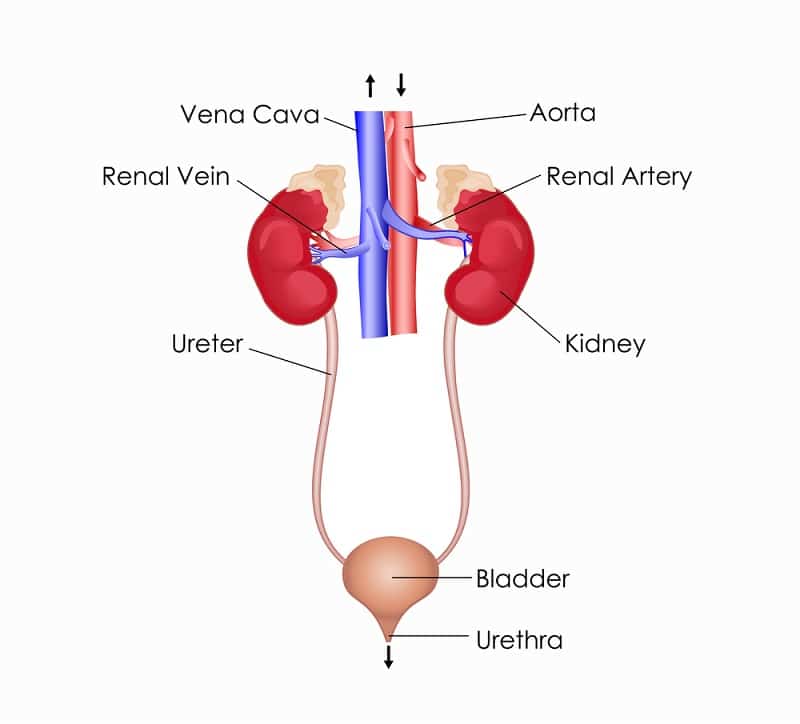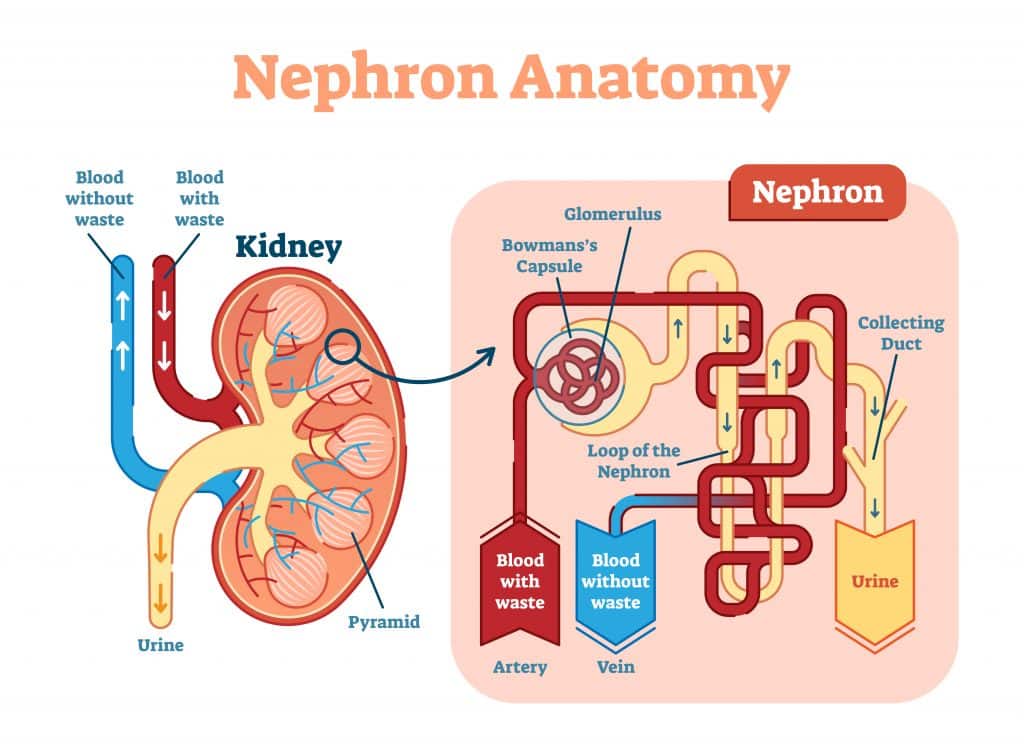Section 2: The Excretory System
The excretory system is the system of the body whose job is to eliminate waste. Those wastes are removed through excretion, which removes those wastes as solids, liquids, or gases. It includes the skin, lungs, liver, and kidneys.

The kidneys are a major excretory system organ that eliminates waste and keeps materials your body needs. Each kidney contains a million nephrons, tiny filtering factories that remove waste from the blood and produce urine. Urine is formed by the kidneys as they filter blood. Next, urine flows from the kidneys through narrow tubes called ureters and is carried to the urinary bladder, the sac-like organ where it is stored. Finally, the urethra is a small tube through which urine leaves the body.
The nephrons in the kidneys filter waste in stages. First, blood enters the kidneys and reaches a cluster of capillaries in the nephron. Then the capillaries in the nephrons are surrounded by a capsule where urea, glucose, and some water enter from the blood. Some filtered materials, such as glucose and water, are then returned to the blood, leaving urea and other waste products, called urine, in the tube. Next, urine slides down tubes called ureters into the bladder. Finally, when the bladder is halfway full, a signal is sent to the brain telling your body you have to pee. When you pee, your bladder empties, and urine leaves the body through the urethra.

Review:
- What is the job of the excretory system?
- Explain the purpose of the kidneys.
- What are nephrons?
